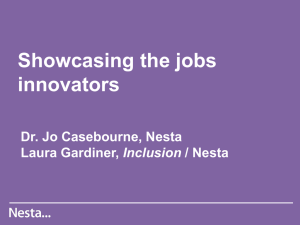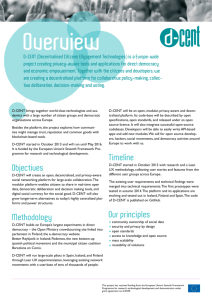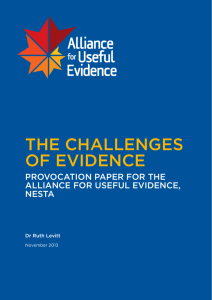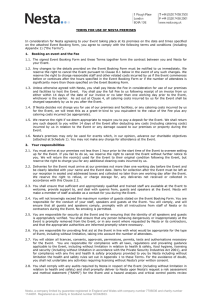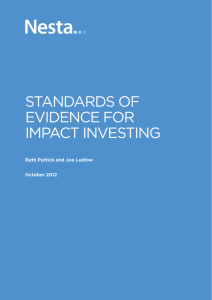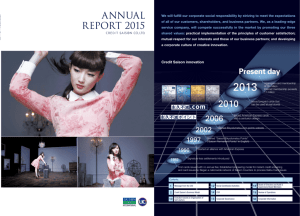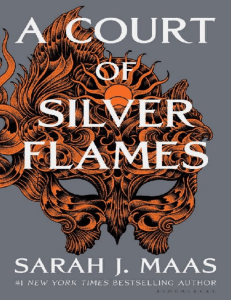ESSAY - NESTA and the DREAM TIME FELLOWSHIP PROGRAMME
advertisement
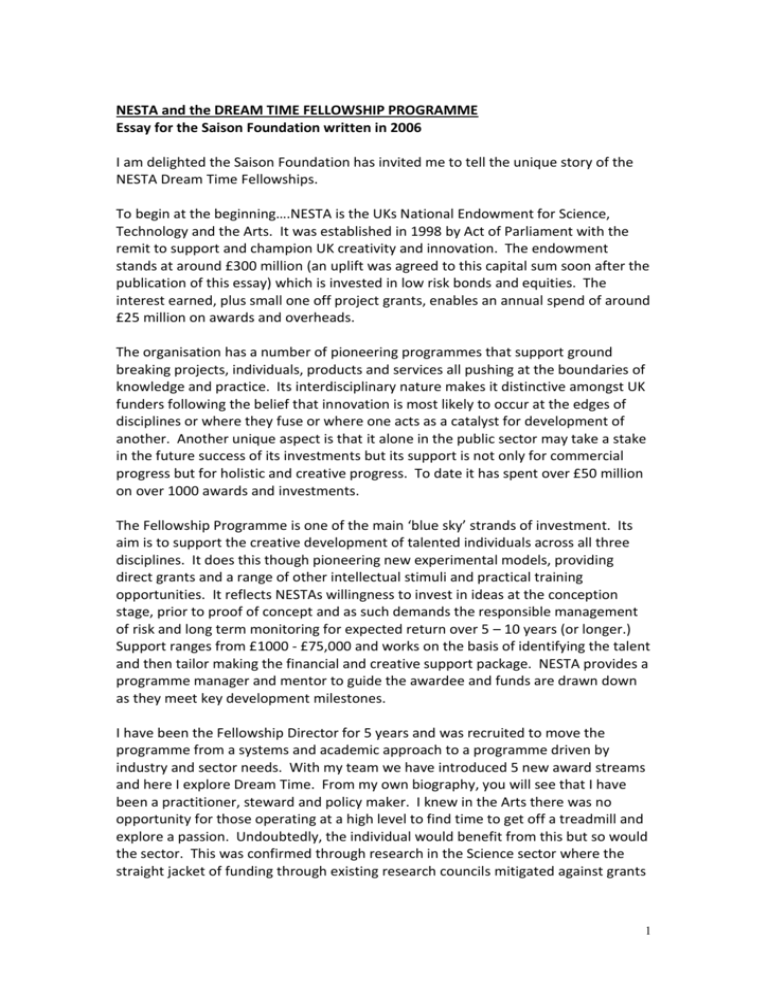
NESTA and the DREAM TIME FELLOWSHIP PROGRAMME Essay for the Saison Foundation written in 2006 I am delighted the Saison Foundation has invited me to tell the unique story of the NESTA Dream Time Fellowships. To begin at the beginning….NESTA is the UKs National Endowment for Science, Technology and the Arts. It was established in 1998 by Act of Parliament with the remit to support and champion UK creativity and innovation. The endowment stands at around £300 million (an uplift was agreed to this capital sum soon after the publication of this essay) which is invested in low risk bonds and equities. The interest earned, plus small one off project grants, enables an annual spend of around £25 million on awards and overheads. The organisation has a number of pioneering programmes that support ground breaking projects, individuals, products and services all pushing at the boundaries of knowledge and practice. Its interdisciplinary nature makes it distinctive amongst UK funders following the belief that innovation is most likely to occur at the edges of disciplines or where they fuse or where one acts as a catalyst for development of another. Another unique aspect is that it alone in the public sector may take a stake in the future success of its investments but its support is not only for commercial progress but for holistic and creative progress. To date it has spent over £50 million on over 1000 awards and investments. The Fellowship Programme is one of the main ‘blue sky’ strands of investment. Its aim is to support the creative development of talented individuals across all three disciplines. It does this though pioneering new experimental models, providing direct grants and a range of other intellectual stimuli and practical training opportunities. It reflects NESTAs willingness to invest in ideas at the conception stage, prior to proof of concept and as such demands the responsible management of risk and long term monitoring for expected return over 5 – 10 years (or longer.) Support ranges from £1000 - £75,000 and works on the basis of identifying the talent and then tailor making the financial and creative support package. NESTA provides a programme manager and mentor to guide the awardee and funds are drawn down as they meet key development milestones. I have been the Fellowship Director for 5 years and was recruited to move the programme from a systems and academic approach to a programme driven by industry and sector needs. With my team we have introduced 5 new award streams and here I explore Dream Time. From my own biography, you will see that I have been a practitioner, steward and policy maker. I knew in the Arts there was no opportunity for those operating at a high level to find time to get off a treadmill and explore a passion. Undoubtedly, the individual would benefit from this but so would the sector. This was confirmed through research in the Science sector where the straight jacket of funding through existing research councils mitigated against grants 1 to individuals and in the Technology sector where individuals were working in the high octane atmosphere of small project cells. Originally called Oneiros, Dream Time was born in 2002, open to individuals with at least 10 years high level experience in their profession. They could apply for up to £40,000 over up to one year to be deployed in as flexible a manner as possible. They could use it on a full time, part time or day release basis. The self development programme must be shown to be of benefit to the individual and their sector. On the basis that these individuals are well networked they are required to find 10% of the amount they apply for from other sources by way of supplementing the NESTA funds. They must also demonstrate: Evidence of exceptional and excellent achievement; A significant body of work; An ability to work in new and challenging ways; Evidence that this is the right time for them to make the most of the chance to dream; Evidence of commitment to their profession and area of proposed exploration; and; Present plan to disseminate what they discover from their Dream Time journey. We also look at the general criteria for an award which are: Excellence, Commitment, Creativity and Innovation, Promise, Usefulness and Value for Money. This may seem a great deal but we determine these through asking them to tell us about themselves; What they want to do? Why they want to do it? When and how? How much will it cost and how would it be of benefit to themselves and others. We have been consistently complimented on the sensitivity, insightful and challenging nature of the application process. Applicants have said that it allows real freedom to express the high level aspirations of seriously creative individuals. To give an idea of the competitiveness of this award, in the first year we attracted just over 300 applications for 6 awards. By the third year we attracted nearly 1000 applications for 15 awards. To date we have invested over £1.2 million in 31 individuals. We have now paused to evaluate and to consider other strategic directions for NESTA as a whole. The pause attracted so many letters that demonstrate evidence of needs that I am hopeful Dream Time will find a new lease of life. We have attracted a good deal of national and international attention with this award and it has gained respect as a valued opportunity within the sectors we serve. An independent evaluation concluded we have created an exceptional group of leaders and “change agents” across the disciplines. Examples of awardees include: Jude Kelly CBE, currently Artistic Director of the premier arts centre in the UK (the Southbank Centre) and formerly CEO of the West Yorkshire Playhouse. She is Chair of the London 2012 Culture and Education Committee and a Board Member of the 2 British Council. She took time to explore the role of the Artist as Leader and Policy Maker and examine her own capacity to nurture innovation in performance. Steve Grand, an independent scientist and visiting Professor at Bath University, once described as the cleverest man in Britain. Steve took time to develop LUCY, an intelligent robot that could make simple choices through neural networks and follow through with almost human arm movement as she grasped a banana or orange at will. Steve now lives and works in California. Angela de Castro, Britain’s premier female clown who was exploring the contribution of female clowns through the Russian an Italian traditions as well as the impact and potential impact of clowning on society today. Angela has toured with the world renowned Slava in SnowShow. Phil Minton a vocalist who took time to explore feral voices and vocal techniques from around the world. Working with a huge variety of individuals from the Tula Throat Singers, who can create two notes at the same time, to homeless street children in the favellas of Rio. Graham Jones an unconventional scientist who is breaking new ground in science communication as he communicates serious scientific material and issues to a variety of non traditional audiences. He has created interactive seminars such as “Saturday Night Science” for teenagers and the “Science of Retail Therapy” which he takes into shopping centres. Each of these individuals are truly extraordinary and it has been a pleasure to see them flourish. I thank the foundation warmly for this opportunity to discuss my own passions. I am particularly proud of this award and that over five years we have had recognition from so many quarters regarding our treatment and care of these talented national treasures. Venu Dhupa 3
